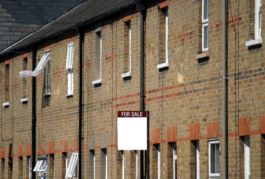Mortgage Demand Slows
It appears that higher interest are pushing a bigger dent into the demand for mortgages and forcing down the rate of house price increases at last. Two sets of figures issued today suggest that the housing market slowdown has arrived.
The British Bankers Association said that the number of home loans in June were 11% down on the same month in 2006, and Nationwide building society has reported that house prices went up by just 0.1% in July to bring annual house price inflation down to 9.9%.
 Such data suggests that the five interest rate rises in the last twelve months are finally having an impact on the way the country is behaving towards buying homes, and they are taking their toll on the UK’s booming property market. The movements in data may even cause the Bank of England to strongly review its suspected position of wanting to push rates up again by another quarter point.
Such data suggests that the five interest rate rises in the last twelve months are finally having an impact on the way the country is behaving towards buying homes, and they are taking their toll on the UK’s booming property market. The movements in data may even cause the Bank of England to strongly review its suspected position of wanting to push rates up again by another quarter point.
Howard Archer of Global Insight said: "The BBA mortgage approvals data are particularly soft for June, adding to the growing signs that the housing market is losing significant momentum as higher interest rates, elevated house prices and modest real disposable income growth increasingly squeeze new buyers out of the market and make it more difficult for existing house owners to trade up."
The mortgage approvals reported by the BBA are loans agreed but not yet completed, and these went down to 75,318 in June, compared with 86,006 in June 2006. Experts view mortgage approvals as a more up to date indicator of the market that lending figures which refer to deals over previous months. June lending figures were revised upwards from £5.1bn to £5.4bn. David Dooks of the BBA thought that the number of approvals for house purchase was well down on the same time last year as market demand was beginning to react to higher mortgage costs.
The figures from Nationwide for July’s house prices show just a 0.1% increase to take the average house price to £184,270. The annual rate of inflation came down from 11.1% to 9.9%. It is up by £16,537 on twelve months ago, but it is the first time in four months that growth has been as low as single digits.
Fionnuala Earley, chief economist at the Nationwide, believed the market was showing signs of cooling down, "The sharp slowdown in July's house price numbers could show that potential homebuyers are thinking twice about overstretching themselves in a higher interest rate environment," Ms Earley said.
Where experts had been sure that another quarter point rise on interest rates was inevitable come September, some City economists now believe that the rate may have peaked at 5.75%. Nevertheless the high interest rate and wide belief that it still has further to go has been one factor behind sterling’s recent show of strength against the US dollar. The Bank of England has a duty to try and keep inflation as close to the Government target of 2% as possible. The official measure of inflation, Consumer Price Index (CPI) was down to 2.4% in June, having peaked at 3.1% in March, but the downward trend may not be quick enough to satisfy those on the Bank’s Monetary Policy Committee who make base rate decisions.
Tom Smith
1st August 2007
Recent Mortgage News:

